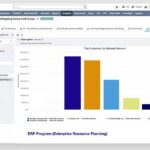The Best Fluffy Pancakes recipe you will fall in love with. Full of tips and tricks to help you make the best pancakes.
Navigating the Path to Becoming a Business Intelligence Analyst Requirements
Introduction
Business Intelligence (BI) analysts play a crucial role in helping organizations make data-driven decisions by analyzing complex datasets and providing actionable insights. To excel in this role, individuals need to possess a blend of technical skills, analytical abilities, and domain knowledge. This article explores the education requirements for aspiring BI analysts and provides guidance on the academic paths and qualifications needed to succeed in this field.

Educational Background
Bachelor’s Degree
A bachelor’s degree in a relevant field such as computer science, information systems, mathematics, statistics, or business administration is typically the minimum educational requirement for entry-level BI analyst positions. Coursework in database management, data analysis, programming, and statistics lays the foundation for understanding key concepts and techniques used in BI.
Master’s Degree
While not always mandatory, a master’s degree in a related field can enhance job prospects and career advancement opportunities for BI analysts. A Master of Business Administration (MBA) with a concentration in Business Analytics or a Master of Science (MS) in Business Analytics, Data Science, or Information Systems provides specialized training in advanced analytics, data visualization, and predictive modeling.
Key Skills and Competencies
Analytical Skills
BI analysts need strong analytical skills to extract insights from large datasets, identify trends and patterns, and draw meaningful conclusions. Proficiency in statistical analysis, data mining, and predictive modeling techniques is essential for analyzing complex data and making informed recommendations.
Technical Proficiency
Proficiency in programming languages such as SQL, Python, R, or SAS is essential for querying databases, manipulating data, and performing advanced analytics. Familiarity with data visualization tools such as Tableau, Power BI, or QlikView is also desirable for creating interactive dashboards and reports.
Domain Knowledge
A solid understanding of business processes, industry trends, and organizational goals is crucial for BI analysts to contextualize data and provide actionable insights. Domain-specific knowledge allows analysts to identify relevant KPIs, understand business challenges, and tailor analytical solutions to meet business needs effectively.
Professional Certifications
Certified Business Intelligence Professional (CBIP)
The CBIP certification offered by the Data Management Association (DAMA) validates expertise in various areas of BI, including business analytics, data integration, and data warehousing. Achieving CBIP certification demonstrates proficiency in BI concepts, methodologies, and best practices.
Microsoft Certified: Data Analyst Associate
The Microsoft Certified: Data Analyst Associate certification validates skills in data analysis, data visualization, and data modeling using Microsoft Power BI. This certification demonstrates proficiency in creating data-driven solutions and generating actionable insights using Power BI tools and technologies.
Conclusion
Becoming a successful Business Intelligence analyst requires a solid educational foundation, a diverse skill set, and a commitment to continuous learning and professional development. While a bachelor’s degree in a relevant field is typically the minimum requirement, pursuing advanced degrees, acquiring technical skills, and obtaining professional certifications can enhance job prospects and career advancement opportunities. By combining academic qualifications with practical experience and domain expertise, aspiring BI analysts can position themselves for success in this dynamic and rewarding field.
FAQs
- What education is required to become a Business Intelligence analyst? Business Intelligence analysts typically need a bachelor’s degree in a relevant field such as computer science, information systems, mathematics, statistics, or business administration. Advanced degrees such as a master’s in Business Analytics or Data Science can enhance job prospects.
- What skills are essential for a Business Intelligence analyst? Essential skills for BI analysts include analytical skills, technical proficiency in programming languages and data visualization tools, and domain knowledge of business processes and industry trends.
- Are professional certifications important for Business Intelligence analysts? Professional certifications such as Certified Business Intelligence Professional (CBIP) or Microsoft Certified: Data Analyst Associate can enhance job prospects and demonstrate expertise in BI concepts, methodologies, and tools.
- What is the role of domain knowledge in Business Intelligence analysis? Domain knowledge of business processes, industry trends, and organizational goals is crucial for BI analysts to contextualize data, identify relevant KPIs, and provide actionable insights tailored to meet business needs effectively.



